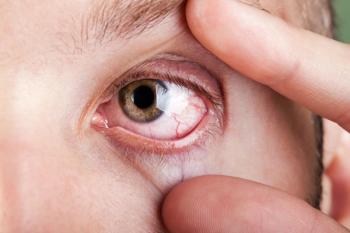
Eysuvis FDA approved for dry eye treatment
Kala Pharmaceuticals to distribute first ocular corticosteroid for short-term treatment of dry eye
Kala Pharmaceuticals received Food & Drug Administration (FDA) approval of Eyesuvis (loteprednol etabonate ophthalmic suspension) 0.25%, an ocular corticosteroid for the short-term treatment of the signs and symptoms of
Related:
“The FDA approval of Eysuvis as the first prescription therapy specifically developed to address the short-term treatment needs of people living with dry eye disease is a major accomplishment for Kala and an important moment for patients, who have been waiting for an FDA-approved, safe, effective and fast-acting therapy,” says Mark Iwicki, president and chief executive officer of Kala Pharmaceuticals, in a statement.
“As we prepare to launch Eysuvis, we will leverage our strong foundation of highly experienced ophthalmology marketing, sales, and market access professionals with the goal of establishing Eysuvis as the preferred, first-line prescription therapy for dry eye disease.”
Related:
The FDA’s approval of Eysuvis was based on positive results from 4 clinical trials, including 1 Phase 2 and three Phase 3 clinical trials, STRIDE 1, STRIDE 2 and STRIDE 3.1 All trials demonstrated significant improvements in DED signs and symptoms with the use of the drug.
After 2 weeks of dosing, statistical significance was achieved for the conjunctival hyperemia endpoint in the 3 Phase 3 trials. Results show Eysuvis was well-tolerated across all 4 trials, with adverse events and intraocular pressure increases comparable to that observed with vehicle.
References
1. ClinicalTrials.gov. Safety and Efficacy of KPI-121 in Subjects With DED (STRIDE 3). NIH. Available at
Newsletter
Want more insights like this? Subscribe to Optometry Times and get clinical pearls and practice tips delivered straight to your inbox.













































